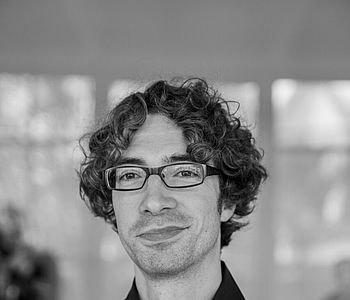Dr Fabian Lemmes | Associated Researcher
Former Member
Home Institution
:
Universität des Saarlandes
|
Position
:
Professor of Cultural and Media History
|
Disciplines
:
History
|
Biography
Fabian Lemmes is Professor of Cultural and Media History at Saarland University in Saarbrücken (Germany). Previously, he was Junior Professor of European History at Ruhr University Bochum and visiting professor at the University of Kassel. Between 2012 and 2016, he was one of the PIs of the international collaborative research project on 'Evacuations in the German-French Border Region' during the Second World War, funded by the Deutsche Forschungsgemeinschaft (DFG) and the Agence nationale de la recherche (ANR).
Fabian studied in Saarbrücken and Paris and holds a PhD from the European University Institute in Florence for the thesis 'The Organisation Todt in France and Italy, 1940-1945'. Additionally, he was a research fellow at Collegium de Lyon, the German Historical Institute in Paris, the Center for Interdisciplinary Research (ZiF) in Bielefeld and the Centre Marc Bloch in Berlin. He is currently pursuing two book projects: a study of the public debates on anarchist terrorism in late 19th and early 20th century Europe, and a survey of the history of anarchism from the 19th century to the present.
His research focuses are:
- European History from the 19th to the 21st century, particularly Germany, France, Italy and Spain including their Mediterranean and global entanglements
- comparative and transnational history
- political violence, terrorism; media history; anarchism and social movements; migration; labour history, forced labour; national socialism and occupied societies; borders and border regions; Mediterranean history
Researchtopic
Research focuses
- European History from the 19th to the 21st century, particularly Germany, France, Italy and Spain including their Mediterranean and global entanglements
- Comparative and transnational history
- Political violence, terrorism; media history; anarchism and social movements; migration; labour history, forced labour; national socialism and occupied societies; borders and border regions; Mediterranean history
Public Debates on Terrorism: The Anarchist Attacks in Western Europe in the Golden Age of the Press (1878-1906)
My project deals with the anarchist attentats in France, Italy, Spain and Germany in the late 19th and early 20th century. These were part of a global wave of bomb attacks and assassination attempts that had unprecedented impacts, notably due to the late 19th century’s media revolution, and that has been described by the political scientist David Rapoport as the first wave of modern terrorism. Not only had they heavy consequences on politics and state policies – in terms of security, immigration and the repression of social movements – as well as the perception and further evolution of anarchism. They also led to intense public debates about political violence and the question of appropriate responses by the state.
The project studies these reactions and debates, in which the border lines of legitimate politics were negotiated and redefined. The numerous analogies that can be observed with current debates, concerning in particular the tension between security, on the one hand, and liberties/rule of law on the other, add to the interest of the project.
Methodologically, the project adopts a comparative and transnational perspective, and proceeds by case studies. It regards terrorism as a communication strategy and pursue three objectives: it explores (1) the media and social communication on terrorist violence, and how these affect the political space; (2) the retroactive effects of the violent acts and debates on the anarchist movement, and (3) what role transnational processes play and what their impact is.